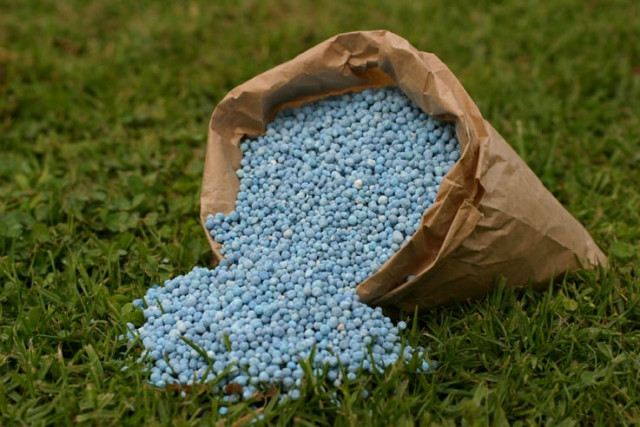Crack down on urea hoarders, provinces Centre asks
Fertiliser prices go up in wake of artificial shortage of commodity.

Rs1,750 per bag, is the price of urea produced in the country, compared to Rs1,600 per bag, for imported urea.
“A fertiliser mafia is creating artificial shortage of urea, forcing the farmers to pay an extra Rs250 to Rs300 per bag,” an official of the Ministry of Industries said, but asked not to be named. “This practice has been going on since November and the government should end the exploitation of farmers.”
In September, the Fertiliser Advisory Review Committee estimated that total demand of urea would be 3 million tons in the Rabi season. Of this, seven domestic producers would churn out 2.5 million tons and the National Fertiliser Marketing Limited (NFML), a subsidiary of the Ministry of Industries and Production, would import the remaining 0.5 million tons.
The ministry argues that fertiliser producers have either reduced or withheld supply of the committed share, putting an extra burden on NFML, which is responsible to meet only 16.6% of the demand.
Difference in prices of urea produced in the country and the imported commodity is also contributing to the market stress like promoting black market, hoarding and exploitation of farmers.
Domestic producers are selling urea at Rs1,750 per bag to the dealers while imported urea is available for Rs1,600 per bag. Though chemical composition of the two products was the same, the market mafia was re-packing, without any check, the imported stuff in locally produced urea bags to pocket extra profit, the ministry official said.
According to him, domestic producers have also opted for a “tie-up marketing” policy to sell their products. A company has tied sales of urea with DAP while another one has tied sales of urea with CAN (calcium ammonium nitrate), resulting in overcharging in the open market.
To cope with the situation, the ministry has suggested that agriculture departments and the district administration should strictly monitor the market and discourage malpractices, which is causing shortage of urea.
“The ministry has decided to take up the matter with leading producers to end the tie-up policy,” the ministry official said.
“The office of Director General Agriculture Extension has failed to provide data of fertiliser supply, given to it by the urea manufacturers, to field formations for monitoring,” said an executive district officer for agriculture. “This provided an opportunity to the dealers to resort to hoarding and overcharge the consumers.”
Chaudhry Naimat Ali, a farmer from Kasur, said the government had fixed the price of imported urea at Rs1,600 per bag, but it was being sold at Rs1,800 to Rs1,900. “Farmers are being looted by the dealers in connivance with the civil administration,” he alleged.
A senior official of the ministry of industries clarified that it was providing urea to the dealers at Rs1,600 per bag with permission to take Rs50 per bag as profit from the farmers. “Because of poor check and balance on part of the district administration, we have received complaints that some unscrupulous dealers are pocketing Rs200 to Rs300 per bag,” he said.
Fauji Fertiliser Company General Manager Iqbal Bokhari argued that the company was meeting its commitment, but the suspension of gas supply was disturbing the production process. “We are receiving 88% of gas, but are producing at full capacity.”
He said the company had not tied up allied inputs with urea sales, adding the problem was in the distribution system, being managed by the civil administration.
Published in The Express Tribune, December 14th, 2013.
Like Business on Facebook, follow @TribuneBiz on Twitter to stay informed and join in the conversation.



















COMMENTS
Comments are moderated and generally will be posted if they are on-topic and not abusive.
For more information, please see our Comments FAQ